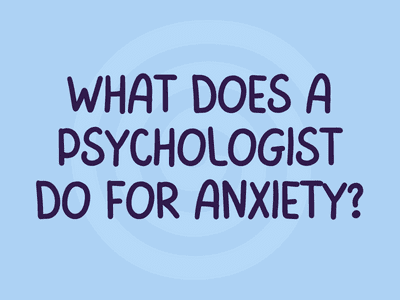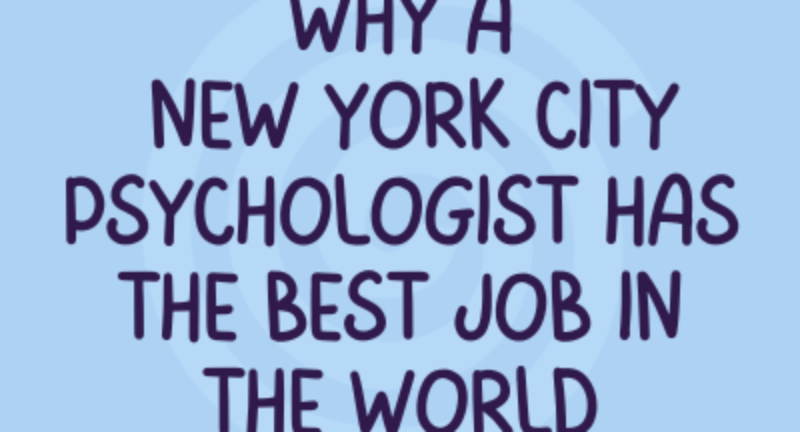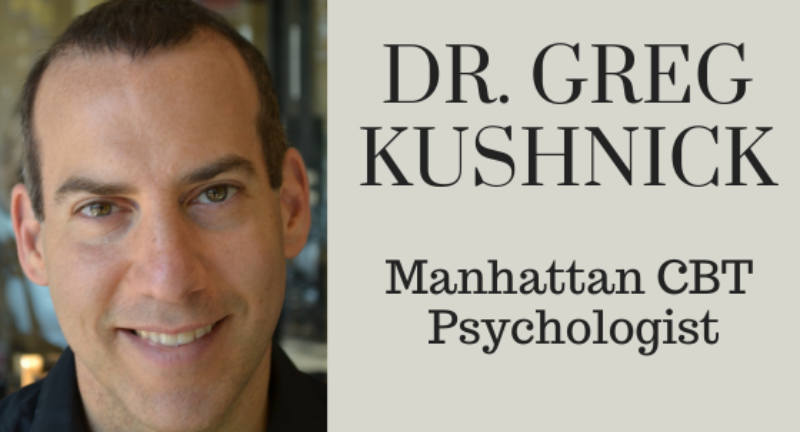
What Does a Psychologist Do for Anxiety? An NYC Doctor Answers
1. What does a psychologist do for anxiety?
A psychologist is trained in providing a variety of methods to alleviate your anxiety. As a Manhattan psychologist who works with ambitious New Yorkers, I offer a multi-pronged approach to alleviating anxiousness. I help clients identify triggers, discover thought patterns that exacerbate anxiety, focus on here-and-now techniques to manage flareups and ultimately gain a toolbox of available techniques to apply to difficult moments. In my experience, the fast-paced life of New Yorkers leads them to have to constantly juggle multiple stressors at once, so anxiety is almost an inevitable part of the NY experience, but there is a tipping point beyond which the anxiety can take over your life. This is where therapy can be immensely helpful.
2. How do psychologists test for anxiety?
A psychologist typically assesses through detailed questioning about your current symptoms and history, including any traumatic life events that may have played a role in your anxiety. Some psychologists offer questionnaires and other formal assessment tools to better understand the nature of your anxiety.
As your psychologist I am better able to help you if I understand many of the details related to the present and the past, but I don’t dwell in the past. I am much more focused on the here and now. The beginning of therapy involves me asking you lots of questions, and then the nature of the conversation shifts into a more collaborative conversation.
3. What type of psychologist should I see for anxiety?
A clinical psychologist is well trained to offer you tools to manage your anxiety. Some clinical psychologists are trained in multiple methods of treatment, such as cognitive behavioral therapy (CBT) or psychoanalysis. Clinical psychologists receive a doctorate in psychology and train in a variety of contexts, including hospitals, clinics and schools. Counseling psychologists represent another option, but they are less common in New York City. Please note that other mental health professionals, such as clinical social workers and mental health counselors can be just as (if not more) effective as a clinical psychologist, but Doctors of Psychology generally receive more formal training on the path to their doctoral degree. Other mental health professionals typically subject themselves to other forms of training after they receive their degree. Please note that there are many exceptions to the comments I made in this paragraph.
I am a clinical psychologist who has trained in just about every type of clinical setting. New York City has offered me so many opportunities to train with such a variety of people from diverse backgrounds and professions. Please do not hesitate to reach out with any questions. I love to talk shop!
4. Can a psychologist help with anxiety?
A psychologist can help with anxiety, but there are a lot of factors involved in determining the extent to which therapy will help. I have found that the following factors play a role in determine success with anxiety treatment for New Yorkers:
a. Timing – Success in therapy is connected to how ready you are and open to subjecting yourself to the therapeutic process. Some clients are in a place in their lives where therapy truly fits in with their life situation. Other clients are initially resistant and fearful, but slowly evolve into a state of readiness to change.
b. The presence of a Medical Condition – Sometimes medical issues slow down progress in talk therapy. Medication might be needed, but that should be determined by a psychiatrist.
c. Your investment in valuing your mental health – In my experience as a New York City psychologist, my clients who allocate a good amount of time to caring for their mental health, even outside of therapy, tend to fare much better than clients who barely make time for therapy and other wellness activities. I respect the extremely busy schedule of ambitious New Yorkers, but to truly manage your anxiety more effectively, you need to allocate time and energy.
5. Is it better to see a therapist or a psychologist?
It really depends on the amount of training of the mental health professional. Many therapists who are not clinical psychologists have undergone more training than psychologists. Look into the breath of experience and areas of expertise of the therapist to determine what works for you. Psychologists are considered one type of therapist.
6. How do I choose a psychologist for anxiety?
In the age of the pandemic, it is even harder to find a therapist because so many people are seeking mental health care. Start with the listing sites on the web, including psychologytoday.com and good therapy.org. Cross reference your findings with the list of in-network psychologists listed on your insurance company’s website. It is a frustrating process for many people to find a therapist. Plan to reach out to 10-20 therapists to find one who is available.
Google each therapist to see if they have a website and more information about their expertise and areas of interest.
If you are able to go out of network to find a therapist in New York City, you can probably find a psychologist who has tons of expertise in exactly the issues that you want to focus on. I purposely created my therapy practice website to give potential clients a lot of information about my approach to therapy and my thoughts about many topics in mental health so that people can get a sense of what I am like even before meeting me. See here for a list of articles I’ve written and expert input I’ve offered.
7. What are 3 coping skills or strategies for anxiety?
a. One coping skill for managing anxiety is to identify your triggers. When you are very aware of the exact stressor, you can work with a clinical psychologist to develop tools to take action.
b. Another coping skill is to become very aware of bodily sensations associated with anxious states. How does anxiety show up in your body? It’s different in everyone. When you have a keen understand of your physical symptoms, you’re less likely to be surprised by the way your body responds in the future. The goal is to be able to say, “Oh, my heart is racing not because I’m having a catastrophic medical issue, but because my anxiety has been triggered.
c. Distraction is king. Redirecting your attention away from your anxiety may also work to reduce symptoms.
(Disclaimer: These strategies are for informational purposes only. Please consult a medical or mental health help if you are experiencing significant anxiety.)
8. How do you calm down/ reduce anxiety?
Anxiety is reduced by developing tools to make you feel more prepared for future episodes of anxiety. It all comes down to what you tell yourself, so self-talk is crucial.
9. What triggers anxiety?
Many things can trigger anxiety, including specific environments, painful thoughts, or in some cases, medical issues.
10. Is anxiety a form of mental illness?
It’s tricky to define what constitutes mental illness. Anxiety is a mental health condition. The word “illness” is less clear to define. The DSMV-TR generally defines mental illness as emotional distress that significantly interferes with one or many aspects of your life, including social, occupational, relationship or school functioning.
11. What is anxiety?
Think of anxiety as the anticipation that a catastrophe is going to occur. Anxiety is the interpretation of an impending threat of some variety. Your mind and body react to the conscious or unconscious message that you won’t be able to handle the threat.
Related Posts
Why a New York City Psychologist Has the Best Job in the World
(As seen on Huff Post) If you're considering a career as a psychologist...
CBT for Social Anxiety in New York City
We all have a need to connect with others. This basic human need can be a source...


